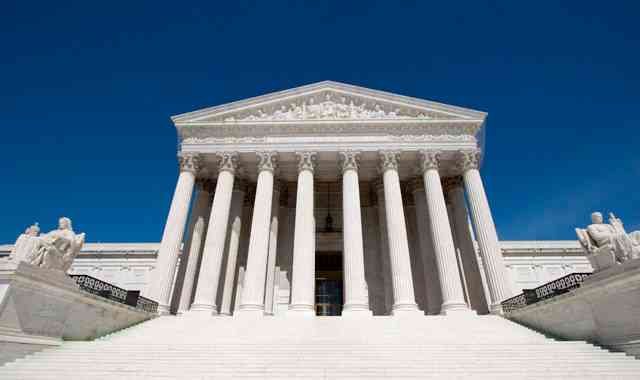Supreme Court Dental Regulatory Board Case Examines Federal Antitrust Laws
The U.S. Supreme Court is set to hear a case regarding whether state-established boards of practitioners, such as those for dentists, made up of members of the profession they are overseeing can properly regulate the profession without running afoul of federal antitrust laws.

The U.S. Supreme Court is set to hear a case regarding whether state-established boards of practitioners, such as those for dentists, made up of members of the profession they are overseeing can properly regulate the profession without running afoul of federal antitrust laws.
Trending article: Runners at higher risk for tooth decay
The case, which is set for a hearing before the justices on Tuesday, examines a 2007 case involving the North Carolina Board of Dental Examiners. The board sent cease-and-desist letters to operators of teeth-whitening kiosks, claiming that they were practicing dentistry without a license. Many of the businesses were pressured into closing, leaving customers no choice but to turn to higher-priced dentists for the service.
In turn, the Federal Trade Commission (FTC) said that the dental board had engaged in unfair competition in the market. In 2011, the board then sued the FTC, saying that it had overstepped its authority. The Supreme Court must decide whether a regulatory board created by state law - but populated with members of the profession they're overseeing - is exempt from federal antitrust law.
"Frankly, doctors, dentists, lawyers, beauticians, barbers, they have obvious incentives to exclude competition, to restrict entry beyond anything that is reasonably necessary," Peter Carstensen, a professor of law and senior fellow of the American Antitrust Institute told the Associated Press. "We have a real problem in this country with more and more trades trying to get some form of regulatory system and exclusion of competitors."
The Supreme Court has already heard from almost two dozen states that have argued that the lower-court rulings that sided with the FTC "punish states for their sovereign choices as to how to staff and supervise their regulatory boards." Regulators also point out that states choose to staff boards with members of the respective occupations because their professional knowledge provides the greatest insight into the field, enabling them to most effectively protect the public's health. In a recent case in Alabama, a judge ruled that since teeth-whitening products can contain up to 16% hydrogen peroxide, they can pose health risks and should be overseen by dentists.
"I think it's also not realistic to get rid of them," stated Lisa Sorenson, executive director of the State & Local Legal Center. "We live in a society that's largely safe ... because we have these boards and commissions that are making decisions that keep professions on the right track."
In addition to dental boards, the current SCOTUS case also examines boards overseeing other professions, including plumbing, cosmetology and more.
Trending article: Discussing current hot topics in dental infection control?
Oral Health Pavilion at HLTH 2024 Highlighted Links Between Dental and General Health
November 4th 2024At HLTH 2024, CareQuest, Colgate-Palmolive, Henry Schein, and PDS Health launched an Oral Health Pavilion to showcase how integrating oral and general health can improve patient outcomes and reduce costs.
Episode 31: Dentsply Sirona Implant Announcements
September 30th 2021DPR’s Editorial Director Noah Levine sat down with Gene Dorff, Dentsply Sirona’s group vice president of implants and Dr. Dan Butterman to review several big announcements the company made in the arena of implants during Dentsply Sirona World 2021 in Las Vegas.